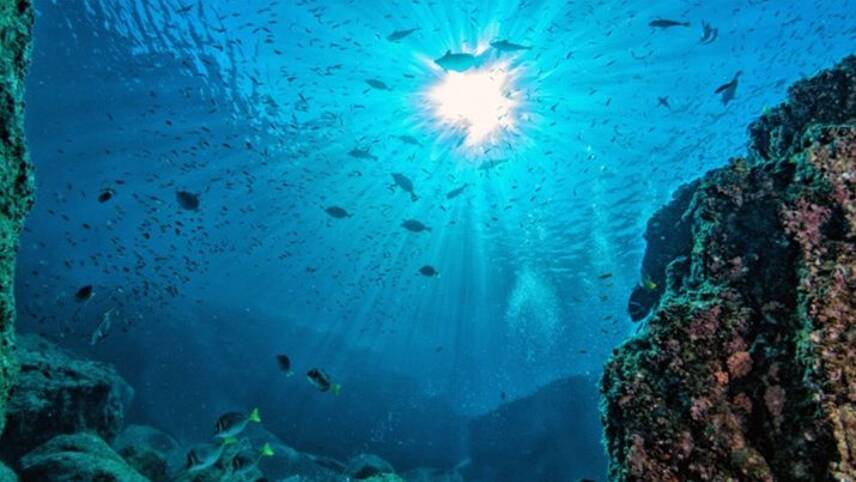Register for free and continue reading
Join our growing army of changemakers and get unlimited access to our premium content

This week, we marked World Oceans Day, one of the United Nations’ primary action days, celebrated annually around the globe since 2008.
However, the timing of this year’s World Oceans Day brings a particular air of urgency, as global decision-makers convene in Lisbon later this month for the decisive United Nations Ocean Conference (27 June – July 1).
The second summit of its kind, the 2022 UN Ocean Conference – co-organized by the governments of Portugal and Kenya – aims to inspire a global effort to rebuild marine life, emphasising the critical role that the ocean plays in stabilising climate systems.
But crucially, the success of this effort cannot just rely on government leaders. It is imperative that decision-makers in business and industry step up to the plate, too.
Businesses can avert a tragedy of the commons
The ocean is an unbelievably precious global resource, acting as the planet’s largest carbon sink by absorbing an estimated 67 billion tons of CO2 over the past 30 years. The wellbeing of our waters is also a vital socioeconomic factor for established and developing economies around the world, with an estimated 40 million people employed by ocean-based industries by 2030.
With an unhealthy ocean comes an unhealthy economy. And yet, across the globe, ocean health is at an all-time low, with 90% of large marine animal populations depleted, and coral reefs globally under threat from mass bleaching events.
We live in a time where businesses are seeking to make a meaningful ESG impact. For enterprising firms, the ‘blue economy’ can provide a way to meaningfully halt or even reverse this catastrophic marine decline, while securing sustainable business growth.
The blue economy ranges from concepts such as blue foods – providing low-carbon sustenance to help combat hunger and climate change – to investment in blue natural capital, regenerating ecosystems such as coral reefs and mangroves to mitigate climate change and enhance the livelihoods of coastal communities.
Leveraging these nascent industries to delivering real, positive impact in our oceans requires hard work and innovation, but the rewards for both business and planet can be significant.
I can speak first-hand to such impacts through my role as a Senior Adviser to The Red Sea Development Company (TRSDC), the developer behind some of the world’s most ambitious regenerative tourism projects.
As an example of the ambition that blue economy projects must set, TRSDC has developed a masterplan to deliver a 30% net conservation benefit to the surrounding environment by 2040, achieved by enhancing critical and biologically diverse habitats such as mangroves, seagrass, corals, and land vegetation, and propelling populations of endangered animals to rebound.
In practice, reaching a target of this size requires massive innovation. We are working to establish the Middle East’s largest Marine Protected Area to ensure our unique flora and fauna are sheltered from human activity. We’re also exploring new technologies such as 3D coral printing and coral farming to boost populations of Red Sea ‘supercoral’, which we hope can provide lessons for rebuilding reefs elsewhere in the world.
Investments such as these make sense for both the wellbeing of our planet and future economy. It’s estimated that some 120,000 jobs will be created with the development of these projects and the regeneration of the Red Sea’s unique marine ecology, while also advancing local communities.
Realising our shared responsibility
This example is just a snapshot of the global opportunity presented by the premise of a healthy ocean. Momentum is shifting in the growth of this new blue economy, and businesses must act now to deliver meaningful change.
At the global policy level, key meetings such as the UN World Food Systems Summit in September 2021 have consolidated the strategic power of concepts such as blue foods – a particularly relevant development in light of the strain on global food supply caused by the war in Ukraine. More recently, in March 2022, 175 nations approved the Nairobi Declaration, establishing a crucial and legally-binding framework to put an end to plastic pollution by 2024.
We are slowly but surely moving from the concept that the Ocean is terra nulis, or no one’s land – a concept handed down from the ancient Roman Justinian Code to all western legal systems and the original sin responsible for this tragedy of the commons.
Instead, in the 21st century, we must view the ocean as terra omnium, the shared responsibility and resource for all. Businesses who are seeking to make real ESG impact should be placing their faith in these changes, and invest now in the blue economy – not just for themselves, but for the planet.



Please login or Register to leave a comment.